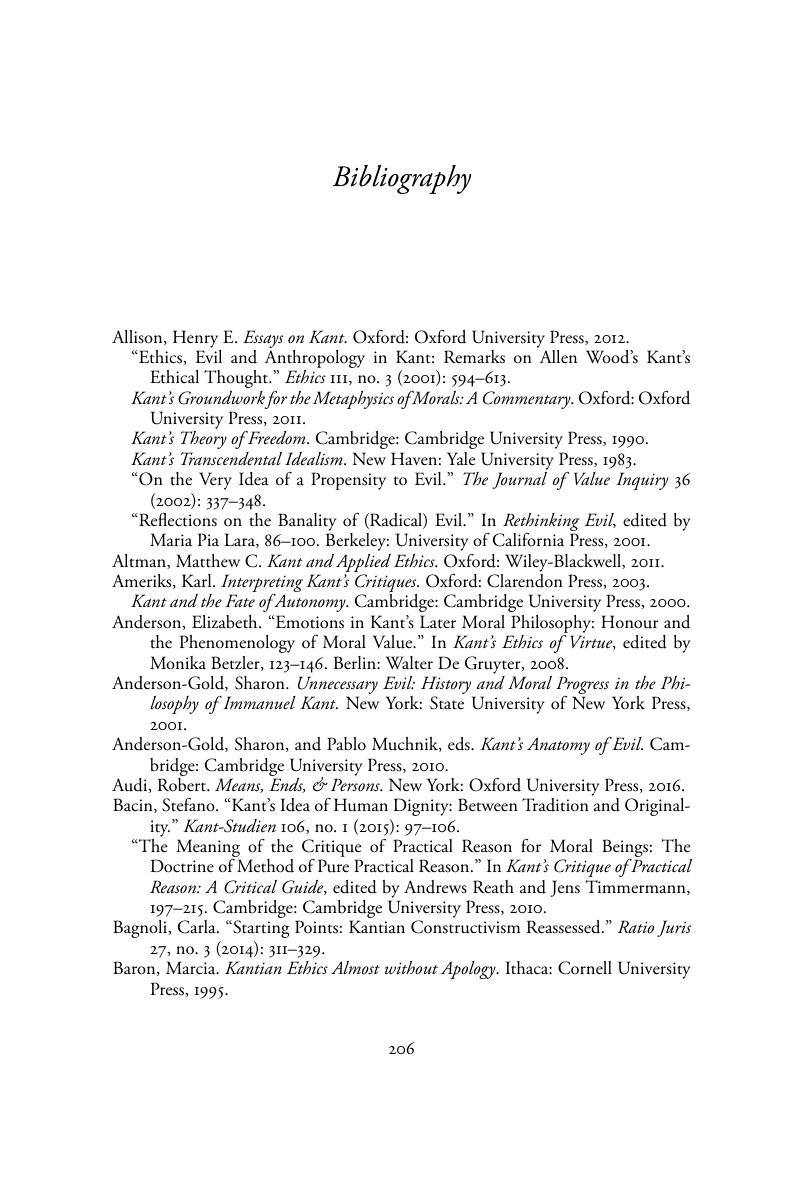Book contents
- Kantian Ethics, Dignity and Perfection
- Kantian Ethics, Dignity and Perfection
- Copyright page
- Contents
- Figures
- Acknowledgements
- Introduction
- Chapter 1 The Categorical Imperative and the Formula of Humanity
- Chapter 2 Grounding Dignity
- Chapter 3 Treating People with Dignity and Respect
- Chapter 4 Who Has Dignity? Rational Agency and the Limits of the Formula of Humanity
- Chapter 5 Achievement Dignity, Virtue and Autonomy
- Bibliography
- Index
- References
Bibliography
Published online by Cambridge University Press: 02 August 2017
- Kantian Ethics, Dignity and Perfection
- Kantian Ethics, Dignity and Perfection
- Copyright page
- Contents
- Figures
- Acknowledgements
- Introduction
- Chapter 1 The Categorical Imperative and the Formula of Humanity
- Chapter 2 Grounding Dignity
- Chapter 3 Treating People with Dignity and Respect
- Chapter 4 Who Has Dignity? Rational Agency and the Limits of the Formula of Humanity
- Chapter 5 Achievement Dignity, Virtue and Autonomy
- Bibliography
- Index
- References
Summary

- Type
- Chapter
- Information
- Kantian Ethics, Dignity and Perfection , pp. 206 - 218Publisher: Cambridge University PressPrint publication year: 2017



